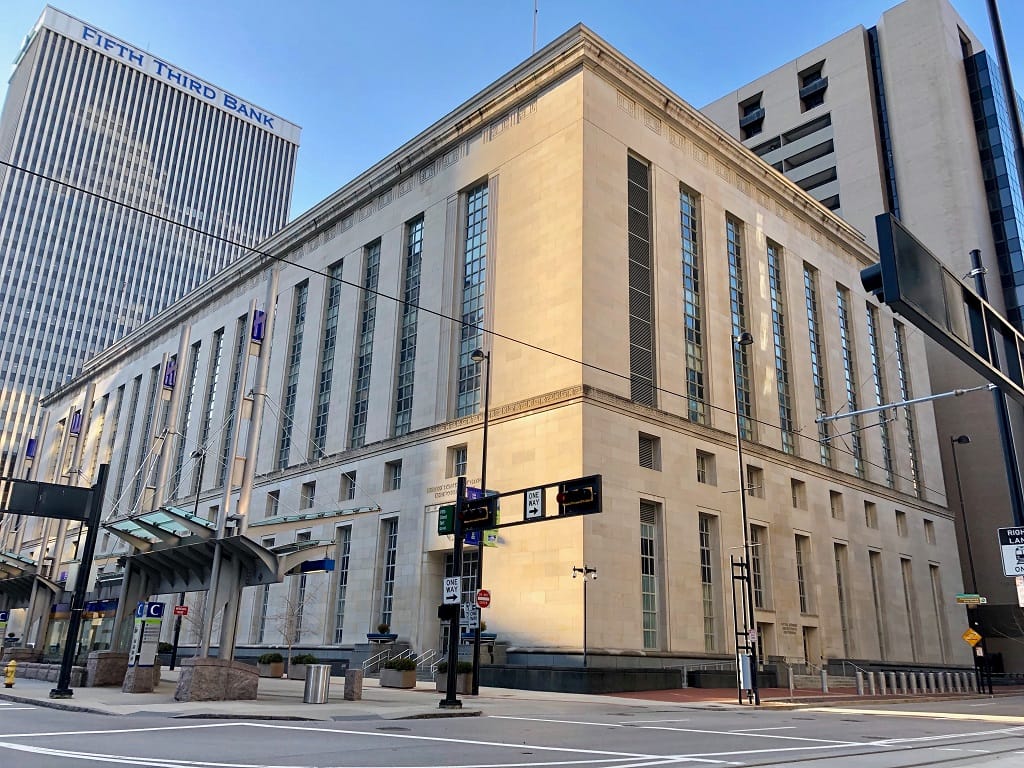Sixth Circuit Appeals Court Denies Petition Challenging FCC Jurisdiction on Universal Service Fund
Sixth Circuit adopted reasons from another appeal court.

WASHINGTON, May 8, 2023 – The Sixth Circuit Court of Appeals ruled Thursday that the Federal Communications Commission was prescribed sufficient guidance by Congress to collect money from communications companies for the Universal Service Fund and is within its authority to subdelegate some of that authority to a private entity, citing similar reasons as the Fifth Circuit in March.
Non-profit research house Consumers’ Research and communications service provider Cause Based Commerce last year asked the U.S. Court of Appeals for the Fifth Circuit – and the Sixth and 11th circuits – to find that Congress under Section 254 of the Telecommunications Act of 1996 gave the FCC unfettered delegatory authority to raise revenues akin to taxation for the fund that provides basic telecommunications services and that the commission has illegally delegated that authority to a private entity known as the Universal Service Administration Company.
The Fifth Circuit denied the petition on the grounds that Congress gave sufficient guidance to the agency to determine what to do with the $9-billion fund, put in sufficient guardrails for its administration, and that the FCC has enough oversight over USAC to subordinate some authority to the private body.
In a decision on Thursday, the Sixth Circuit came to the same conclusion using much of the same reasons as the Fifth Circuit.
“So long as Congress ‘shall lay down by legislative act an intelligible principle to which the person or body authorized to [exercise the delegated authority] is directed to conform, such legislative action is not a forbidden delegation of legislative power,” the Sixth Court said.
Those principles, as laid out in Section 254, include Congress’s explicit order to the FCC to ensure telecom services are of decent quality, reasonably priced, available equally in rural and urban areas, and funded in a nondiscriminatory manner.
“Together, these principles provide comprehensive and substantial guidance and limitations on how to implement Congress’s universal-service policy, and in turn, how the FCC funds the USF,” the Sixth Circuit said in its decision.
“Congress’s decision to grant an agency the ability to address new concerns while still constricting the agency’s discretion to do so within the statute’s purpose and principles does not turn a statute with an intelligible principle into an unconstitutional delegation,” the decision added.
The decision also noted that Congress limited the FCC’s authority by explicitly stating that federal funds should go to certain communications carriers and bound them to certain uses of the money. It also noted a “soft cap” in the language of the size and budget of the program.
The Sixth Circuit also agreed with the Fifth Circuit that there is no violation of the private-nondelegation doctrine by virtue of the fact that the FCC delegates the authority to USAC to set the amount to be collected from the communications companies for the fund because USAC is subordinated to the regulator.
“In its subordinate role, USAC provides the FCC with fact-gathering, ministerial, and administrative support,” the Sixth Circuit decision said. “It submits for approval to the FCC the underlying data and projections that the FCC then uses to calculate the contribution factor.”
“Critically, the FCC is not bound by USAC’s projections,” the decision added, noting the FCC may approve or deny the contribution recommended by USAC.
In a joint statement, trade groups Competitive Carriers Association, NTCA Rural Broadband Association, and USTelecom said, “Today’s decision is a win for the millions of rural and urban consumers as well as anchor institutions that rely on the services supported by the federal Universal Service Fund.
“As the court decision today confirms, Congress’ direction to the FCC—more than 25 years ago—to collect contributions in support of the universal service program is constitutional,” the statement added. “We believe that other courts considering similar challenges should come to the same conclusion.”
The USF is under financial pressure due to its reliance on voice service providers, a relic of its past. There is collective agreement that reform is needed, with recommendations for expanding the funding base including drawing on broadband service revenues, Big Tech contributions, and relying on general taxation.
In a report to Congress last year, the FCC said it would prefer to have congressional approval to expand the contribution base. As such, a bill introduced in both chambers in March would require the FCC to study and make rules on expanding the funding base.








